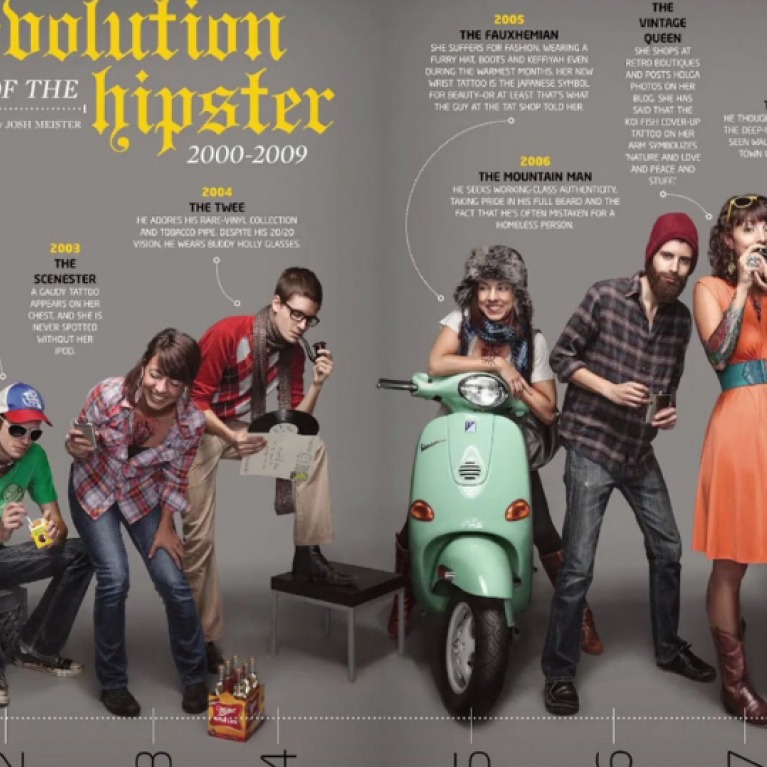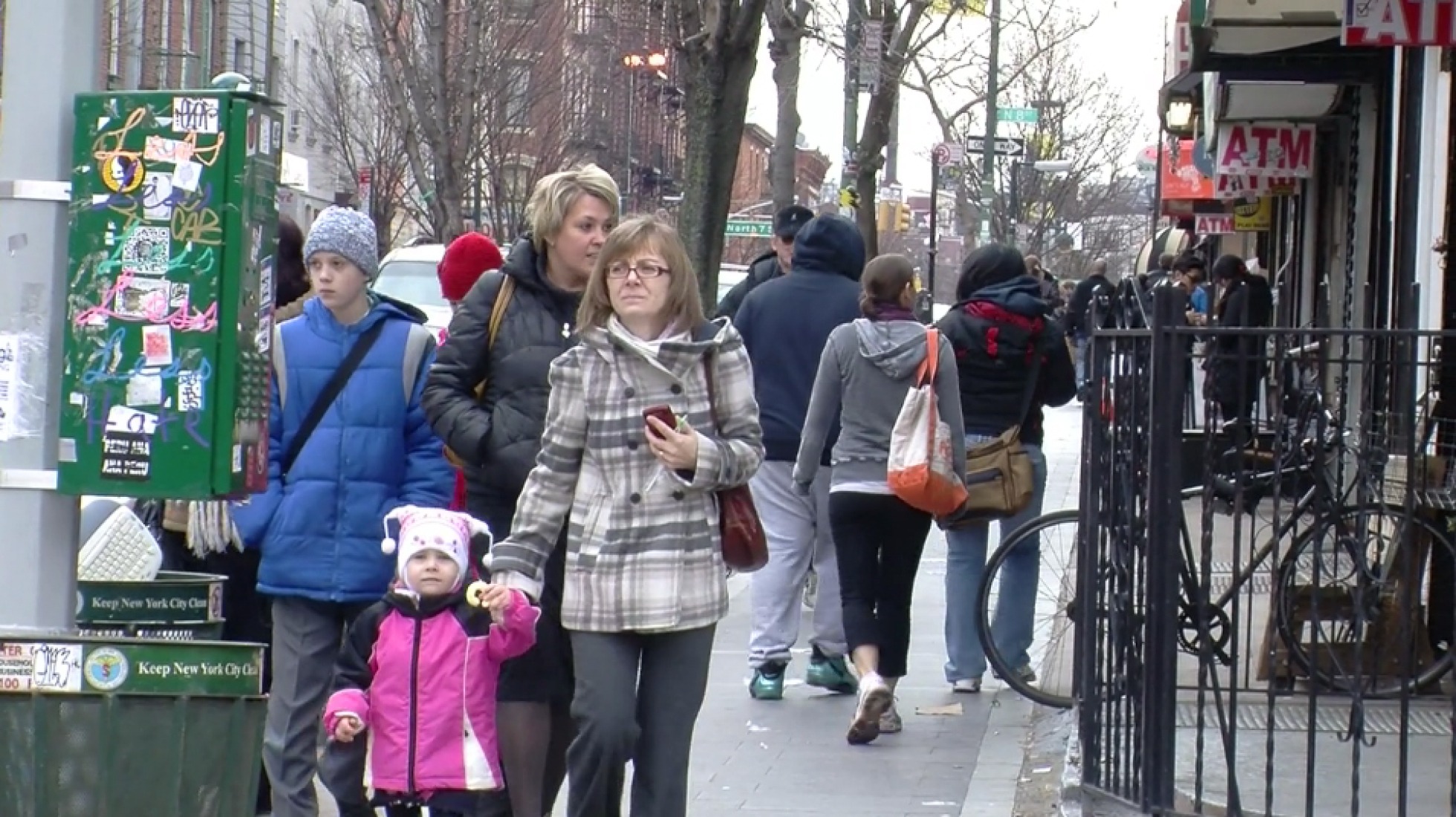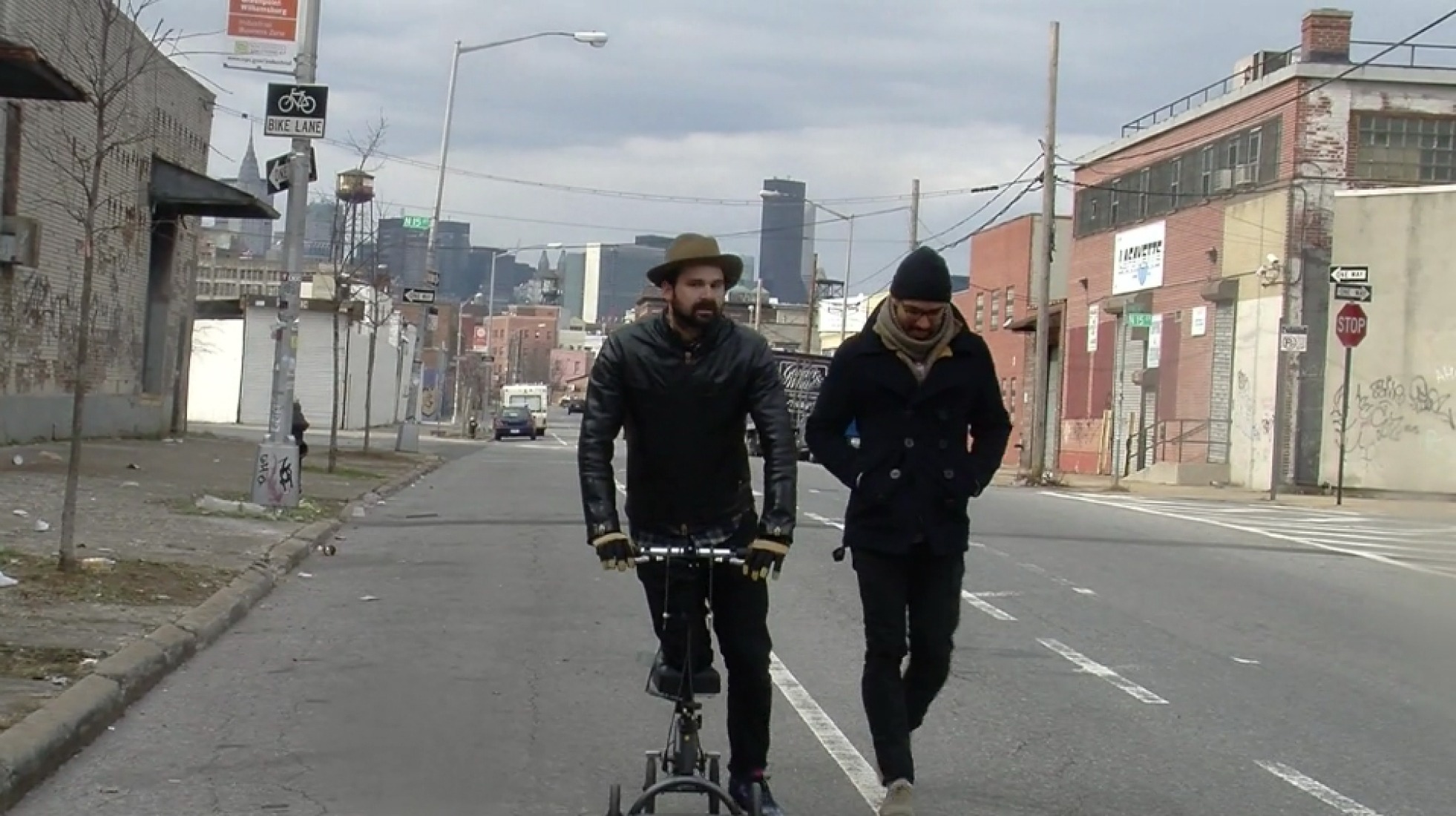Everyone? When Lorena arrived to New York City from France last August, she'd never heard of hipsters. And when she asked, she got vague, often contradictory responses: Hipsterism is a lifestyle. No, it's an attitude. No, it's a pseudo-attitude. Hipsters are penniless creative types. No, they’re just rich kids pretending to be. Hipsters are environmentally conscious. No, they pose as tree-huggers but shop at Wal-Mart.
She was confused.
This video attempts to de-code the hipster for the clueless foreigner, like Lorena. In this piece, she invites viewers along for the journey as she hunts for the meaning of the term "hipster." This quirky piece takes viewers around the streets of Williamsburg, Brooklyn, where they are guided by an "accidental hipster" blogger. It also incorporates the voices of the Journalism School's own Prof. David Hajdu, as he delves into the term’s jazzy origins.
1940-1950. The term itself was coined during the jazz age, when "hip" emerged as an adjective to describe aficionados of the growing scene. Although the adjective's exact origins are disputed, some say it was a derivative of "hop," a slang term for opium, while others believe it comes from the West African word "hipi," meaning "to open one's eyes." Nevertheless, "hip" eventually acquired the common English suffix -ster (as in spinster and gangster), and "hipster" entered the language. Hipster (1940s subculture).
1990-2000. In early 2000, both the New York Times and Time Out New York ran profiles of Williamsburg, Brooklyn, without using the term hipster; the Times refers to "bohemians" and TONY to "arty East Village types." By 2003, when The Hipster Handbook was published by Williamsburg resident Robert Lanham, the term had come into widespread use in relation to Williamsburg and similar neighborhoods. The Hipster Handbook described hipsters as young people with "mop-top haircuts, swinging retro pocketbooks, talking on cell phones, smoking European cigarettes... strutting in platform shoes with a biography of Che Guevara sticking out of their bags." Lanham further describes hipsters thus: "You graduated from a liberal arts school whose football team hasn't won a game since the Reagan administration" and "you have one Republican friend who you always describe as being your 'one Republican friend.'" One author dates the initial phase of the revival of the term from 1999 to 2003. Hipster (1940s subculture).











![Friedrich Kiesler, Endless House for Mary Sisler [shattered sketch sheet], New York and Florida, 1961, 21.5 x 33.4 cm, pencil on paper, mounted on cardboard. Courtesy by the Austrian Frederick and Lillian Kiesler Private Foundation, Vienna Friedrich Kiesler, Endless House for Mary Sisler [shattered sketch sheet], New York and Florida, 1961, 21.5 x 33.4 cm, pencil on paper, mounted on cardboard. Courtesy by the Austrian Frederick and Lillian Kiesler Private Foundation, Vienna](/sites/default/files/styles/mopis_home_news_category_slider_desktop/public/2025-05/metalocus_Fundacio%CC%81n-Frederick-Kiesler_03_p.jpg?h=3b4e7bc7&itok=kogQISVW)









